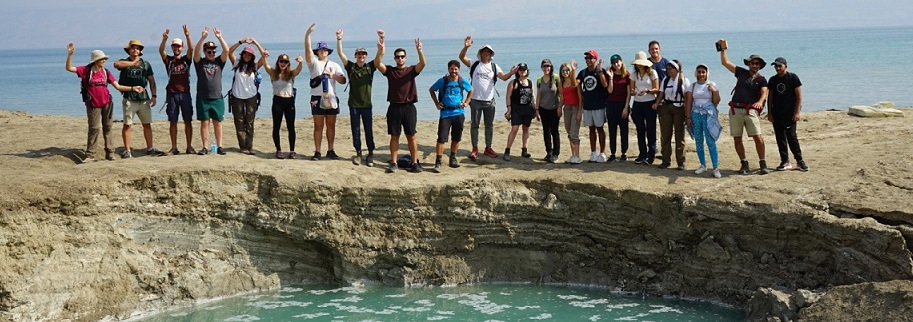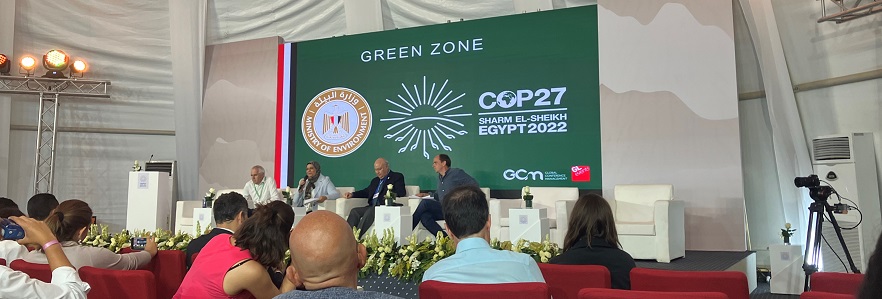Pursuing Climate Justice, One Conversation at a Time
In November, I had the opportunity to attend the Sharm el-Sheikh Climate Change Conference (COP 27) along with other young leaders from the Jewish Youth Climate Movement (JYCM) and Nitzana. Founded in 2019, JYCM focuses on bringing climate action to the forefront of the Jewish community. We believe that youth organizing is crucial to shaping our future, and Jewish values of tzedek and tikkun olam guide our intention to act on the injustice we see.

My experience was made possible through the Federation’s Israel Within Reach grant.
It was an exciting opportunity to unite with other participants to address the most significant issue of our time: the climate crisis. Before attending the conference, the American and Israeli delegations spent time traveling through Israel, learning about climate justice issues, including water access, land use, food deserts for Bedouin communities, and renewable energy in the desert.
It was powerful to see the struggles and solutions Israel faces, and I learned that the battle for peace in the region is deeply connected to climate justice.

We entered the conference with hopes for global leaders to present solutions and listen to youth and marginalized peoples, but were disappointed. Our global leaders had not followed up on their promises from COP 26 and continued to sign agreements that will keep us on track to reach 1.5 degrees of warming or more. The conference was also sponsored by the largest plastic polluter in the world and was attended by over 600 representatives from fossil fuel companies. This may seem discouraging. And it is.
There were two main areas where the conference took place—the Blue Zone and the Green Zone. The Blue Zone was where global leaders and corporations along with UN-registered organizations held climate negotiations. The venue was filled with bustling politicians and esteemed conversations. The Green Zone—designated for youth activists, businesses, and civil society—was a 15-minute bus ride away.

My group only had Green Zone access, and though it was hard knowing that we were separated from the main conference and sometimes felt as though we were sitting at the “kids’ table” and missing pivotal conversations, I chose to focus on the positive elements of this area. I got to meet incredibly smart and interesting people from around the world, who came to this conference with the goal of making an impact, and I heard panel discussions on topics such as education and regenerative agriculture.
I realized that the most important thing I gained from this experience was the connections I made and conversations I had.

It is important to have conferences and bring people together, but real change doesn't happen overnight. It happens in the time between each COP, when people return to their communities and work together on a local level.
Climate change is not an issue we can solely address with climate-smart agriculture or carbon capture. We need to fundamentally shift the way that the majority views the world and the relationships we have with one another and our planet. We must face the difficult truth, and let it motivate and inspire us. And this all starts in our own communities.
Photos courtesy of Bella Weksler
Israel Within Reach is a need-blind grant program that underwrites the cost of an Israel experience for 8th graders (12-13 years old) to 25-year-olds living in the Federation service area. Trip participants apply for the grant online and receive a response within four weeks. If the applicant meets our criteria and the selected program is approved, they will be awarded a grant ranging between $500-$1,200. For more information, contact Eliezah Hoffman.
Philanthropy can help mitigate the worst effects of climate change by supporting organizations that are developing creative solutions for our changing environment and working to slow the climate crisis. The Federation’s Climate & Environment Giving Guide lists trusted organizations working in the following five areas: clean energy, ocean conservation, climate justice, sustainable food & agriculture, and forests & wildfires. Consider granting to these organizations to use your fund for meaningful climate action.


